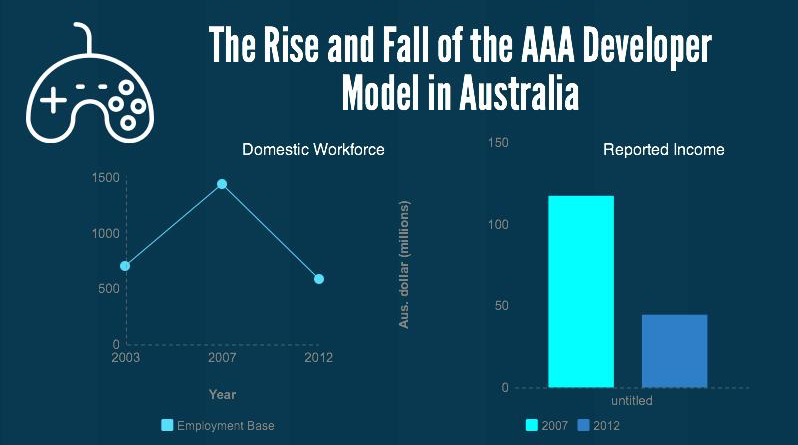Greens senator, Scott Ludlum, recently announced a senate inquiry into the future of the Australian video games industry.
The inquiry, set to be held in April 2016, was in response to the Abbott government’s scrapping of the Australian Interactive Games Fund, and the systematic dismantling of the major publishing industry.
A public submission process was implemented to provide industry and public stakeholders an opportunity to voice their opinions.
It will endeavour to seek ideas to revive the Australian games development industry’s flagging fortunes.
Organised around three basic lines of enquiry, the committee will explore how overseas games companies can be enticed back into the economy. By doing so, they hope to ease the financial burden on domestic developers, and to maximise their opportunities in the global marketplace.
A total of 99 submissions were made from a broad cross-section of the community, including representatives from both major and independent development studios, academic researchers, peak industry bodies, and a large number of gaming enthusiasts.
The move has been a glimmer of hope to many who are dismayed by the current system.
The system has been worsening since the Global Financial Crisis (GFC) in 2009, and has struggled to rejuvenate itself thanks to a lack of large-scale intervention by the government.
Once a dynamic and internationally heralded player in an expanding market, the domestic landscape has eroded to an extent that it’s barely recognisable.
When considering the continuing growth of the international gaming market, the abject failure of the country’s traditional development model becomes especially vexing.
The gaming industry is a global juggernaut that has outstripped the film and music businesses.
In 2014, its annual net worth was estimated at U.S.$83.6 billion, and is expected to grow to at least $113.3 billion by 2018.
Australia only accounts for 3 per cent of the global market.
In an annual report into the state of the national games industry in 2014, the Interactive Games and Entertainment Association determined that retail based revenue had increased by 20 per cent from the previous year, to reach $2.46 billion in sales.
In July, they estimated that 98 per cent of homes with a child under the age of 18, were equipped with some sort of gaming device.
Overall, 68 per cent of Australians were found to play interactive games of some description.
Retail figures tell a compelling story of the rise of gaming as a commodity, but they reveal little about the games development industry.
According to the Australian Bureau of Statistics, the employee base in the Australian games industry doubled from 700 to 1,431, in the four-year period following 2003.
During this time of prosperity, the Australian development industry was largely characterised by the presence of large international partner studios.
For a long while, major overseas publishers, who enjoyed favourable exchange rates and access to a large pool of reputable developers, implemented a work-for-hire regime.
Under contract, employees created intellectual property for their employers, foregoing any intellectual ownership of the work they’d produced.
In their submission to the senate inquiry, professors Stuart Cunningham and John Banks concluded that, at its peak, 80 per cent of the industry’s revenue stream was dependent on this model.
This was until the GFC massively inflated the Australian dollar, eradicating the industry’s price advantage.
This forced a mass number of major studios to depart Australian shores, leaving the domestic industry in a state of free-fall.
As Cunningham and Banks state in their submission, when the last of the major studios, 2K Canberra, folded in April this year, it would have been easy to consign the Australian games development industry to the economic scrapheap.
However, it hasn’t had the completely precarious effects that some might have originally feared.
In fact, the unfettering of development talent from big corporations has been an unintended godsend.
Necessity, as they say, is the mother of all invention.
Diminishing barriers to development and the advent of digital distribution channels, such as Apple’s App Store, have contributed to the growth of a vital independent development scene.
Cunningham and Banks estimate that as of 2014, 98 per cent of the approximate 200 registered games companies in Australia were defined as independent.
This marked a dramatic shift from games being produced under a major publishing model, towards a focus on small teams creating entirely original content.
The recent proliferation of digital distribution channels has given independent developers the means to bring products to market without the traditional constraints presented by the major publishing model. This gives small operators the potential to access massive global markets with very little outlay.
Australian companies enjoyed early success with the new paradigm, most notably Brisbane independent, Halfbrick Studios, with their 2010 hit Fruit Ninja.
With the number of apps available from Apple totalling more than a million, the ability for developers, especially small independents, to gain traction has diminished significantly.
Even in cases of breakout success that have occurred since, the path to development glory is rarely without missteps.
Melbourne-developed app, Crossy Road, which featured in the Apple TV keynote earlier this month, may have generated $10 million in its first three months of release, but that doesn’t account for the many years the developers’ income didn’t pass zero.
A serendipitous bi-product of technological innovation, evolving industrial trends, and a healthy smattering of creative ingenuity, is that the independent development industry has emerged to salvage the remains of an unsustainable creative serfdom.
Free of its colonial overlords, the Australian games industry is now entrusted with its own destiny.
However, this is where part of the problem lies.
This is part one of a two-part series. You can read part two here.
Graphic courtesy of GamesIndustry.biz.
 Duane Rea is studying a Graduate Diploma in Journalism Innovation at La Trobe University. Read his innermost thoughts on Twitter: @duane_rea.
Duane Rea is studying a Graduate Diploma in Journalism Innovation at La Trobe University. Read his innermost thoughts on Twitter: @duane_rea.








